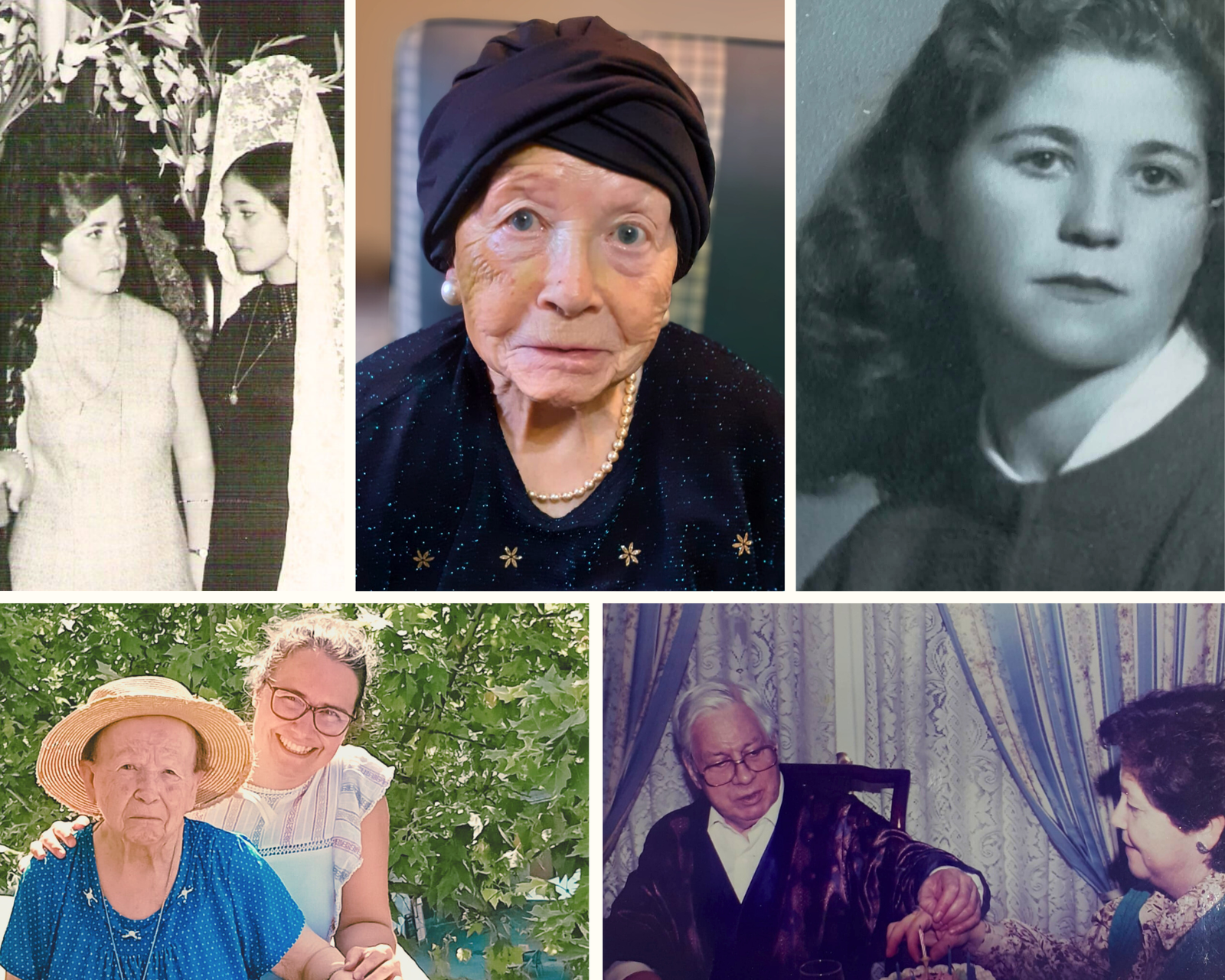
Gospel according to Saint Luke 12:13-21:
Someone in the crowd said to Jesus, “Teacher, tell my brother to share the inheritance with me.” He replied to him, “Friend, who appointed me as your judge and arbitrator?” Then he said to the crowd, “Take care to guard against all greed, for though one may be rich, one’s life does not consist of possessions.”
Then he told them a parable. “There was a rich man whose land produced a bountiful harvest. He asked himself, ‘What shall I do, for I do not have space to store my harvest?’ And he said, ‘This is what I shall do: I shall tear down my barns and build larger ones. There I shall store all my grain and other goods and I shall say to myself, “Now as for you, you have so many good things stored up for many years, rest, eat, drink, be merry!”’ But God said to him, ‘You fool, this night your life will be demanded of you; and the things you have prepared, to whom will they belong?’ Thus will it be for all who store up treasure for themselves but are not rich in what matters to God.
The Wishing Well
Luis CASASUS President of the Idente Missionaries
Rome, August 03, 2025 | XVIII Sunday in Ordinary Time
Eccl 1: 2; 2,21-23; Col 3: 1-5.9-11; Lk12: 13-21
A legend: The wishing well. Arsenio was a poor but wise man, known for his generosity. One day, while walking through the forest, he found an old well hidden in the undergrowth with the following inscription: Whatever you ask for, you will receive. But every wish will have a hidden price.
Despite the warning, Arsenio asked for a gold coin, just one, with which he planned to buy food for the needy. The next day, he found the coin next to his bed. Seeing that the promise had been fulfilled, he decided to ask for another… and then another. Soon his house was filled with gold.
The townspeople, upon hearing of his sudden fortune, flocked to his house. At first, he was happy to help. But something changed. The more gold he had, the more he feared losing it. His generosity turned to fear and almost paranoia, his wisdom to contempt, his joy to envy. He began to think that everyone wanted to steal from him, so he closed his house, built walls, and hired guards.
He no longer went out, no longer helped others. Soon, other sins emerged: pride, believing himself superior; anger, distrusting everyone; gluttony, enjoying excesses in solitude; lust, seeking empty pleasures to fill his soul; and finally, the infinite sadness of having no one.
One day, he returned to the well and shouted, Give me back my peace! Take away my gold! But the well remained silent. Greed had taken root, and from it sprang the other evils that consumed him.
This little story serves to illustrate how easy it is to slip from the best of intentions into the most selfish greed. Greed is an excessive and insatiable desire to possess material goods, power, or pleasures, especially when sought selfishly, regardless of the harm to others. And today Christ gives us the example of material goods, because it is the easiest to understand… even though many of us do not even have the opportunity to be tempted by abundant money.
It does not take much thought to realize how greed explains our faults against Poverty, Chastity, and Obedience: greed makes us feel like we are the absolute owners of time, of our talents, of the image or body of others, of our desires.
For the love of money is the root of all kinds of evil. Some have strayed from the faith and caused themselves much grief because of it (1 Tim 6:10).
—ooOoo—
Greed brings many misfortunes not only to those who succumb to it, but also to the community and those close to them. The Old Testament offers terrible examples, in the language of the time. One of the lesser-known cases is that of Achan, which we can read about in Chapter 7 of the Book of Joshua.
After the fall of Jericho, God had commanded that all the spoils of the city be consecrated to Him, and that no one should take anything for themselves. But Achan disobeyed.
Achan confesses (Joshua 7:20–21):
I have sinned against the Lord, the God of Israel. I have done this thing: I saw among the spoils a beautiful Babylonian robe, two hundred shekels of silver, and a bar of gold weighing fifty shekels, and I coveted them and took them. They are hidden in the ground inside my tent.
Because of this act, Israel was defeated in the next battle, and Achan and his family were severely punished. This is how this shocking story ends:
And Joshua and all the Israelites took Achan, the great-grandson of Zerah, and brought him to the Valley of Achor, along with the silver, the cloak, and the gold. They also brought his sons and daughters, his cattle, his tent, and all his possessions. When they came to the Valley of Achor, Joshua exclaimed,“Why have you brought this trouble on us? May the Lord bring that disgrace on you!”
Then all the Israelites stoned Achan and his family and burned them. They piled a large stone heap over them, which remains to this day. (…). Thus, the Lord appeased his burning anger.
—ooOoo—
Greed is not limited to money. It can manifest itself as an excessive desire for prestige, possessions, influence, affection, or the capricious use of one’s abilities.
It implies a lack of freedom, since the greedy are never satisfied; they always want more.
Greed appears when desire dominates a person and displaces generosity, justice, gratitude, or respect for others.
In reality, the most devastating effect is that it destroys our sensitivity towards our neighbor and, therefore, towards God.
This is precisely where our daily struggle must lie: learning to manage the riches of the earth well so that they lead to heaven and become riches of heaven. It is not simply a matter of “avoiding the temptations of greed,” but of making an ascetic, active effort to use fruitfully the gifts we have received, many of which are not so obvious, because we have perhaps never put them to work, that is, at the service of others. This may be out of vulgar comfort or because we have not sufficiently developed sensitivity toward our neighbor. Greed makes us forget that everything we have is a gift.
The first reading, with a good dose of irony, reminds us of the limits of our best works, which cannot replace God as the center of our existence: There are those who work with wisdom, knowledge, and skill, and yet they must leave their share to someone who has not worked.
St. Paul, in the Second Reading, wants to remind us, with his lively and energetic style, of our identity in Jesus Christ: Do not lie to one another! You have been stripped of the old self with its practices and have been clothed with the new self, which is being renewed in knowledge in the image of its Creator, where there is no Greek or Jew, circumcised or uncircumcised, barbarian, Scythian, slave or free, but Christ is all and in all.
A classic example is the phenomenon of “influencers” who promote products they don’t use or ideals they do not practice. And yet millions follow them, believing that by becoming more like them, they will be closer to happiness. It is the well-known phenomenon of identifying with the idols we create. This type of identification occurs frequently in contemporary culture, where the media and social networks elevate figures who represent superficial ideals, creating unrealistic expectations about success, beauty, or happiness.
Christ gives us two keys to overcoming greed today. One is undoubtedly to think about the brevity of life. But the second is even more important: it is his conclusion at the end of the parable of the prosperous and successful farmer: So it is with those who store up riches for themselves, instead of being rich in the sight of God. It is about living freely in the face of what I consider my successes or failures and thus, with grace, continuing to do good.
Although it is a historical example that apparently does not resemble our lives, which are striking and spectacular, let us remember how even people with the most qualities can fall into greed.
King Louis XIV was king of France from 1643 to 1715, ruling for the longest reign in modern European history. He proudly proclaimed himself “I am the State.”
He had planned for his funeral to be truly spectacular. He instructed Bishop Massillon that when he died, he was to be placed in a golden coffin in Notre Dame Cathedral in Paris; at his funeral, the entire cathedral was to be completely dark, lit only by a candle placed on the coffin.
This was to be done so that everyone would be impressed by the presence of the great king, even after his death. When he died, Bishop Massillon did exactly as the king had ordered.
At the funeral, thousands of people gazed at the exquisite coffin containing the mortal remains of their monarch, illuminated by a single flickering candle.
However, when the funeral began, the bishop, who was well acquainted with the human heart, slowly bowed and, to everyone’s surprise, extinguished the candle that represented the greatness of the deceased king! Then, in the darkness, he proclaimed to all those present: Only God is great!
Pope Francis insisted that greed is not a sin exclusive to the rich. Even those who have little can fall into the trap of many attachments. What is decisive is the attitude of the heart.
_______________________________
In the Sacred Hearts of Jesus, Mary and Joseph,
Luis CASASUS
President












